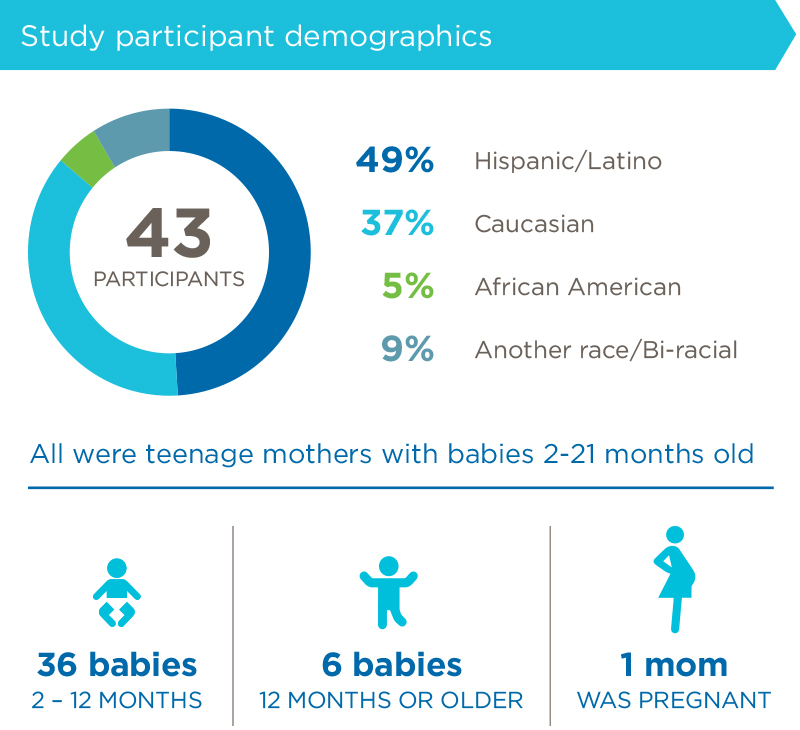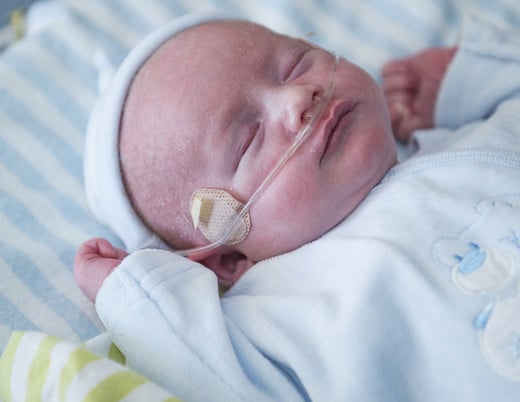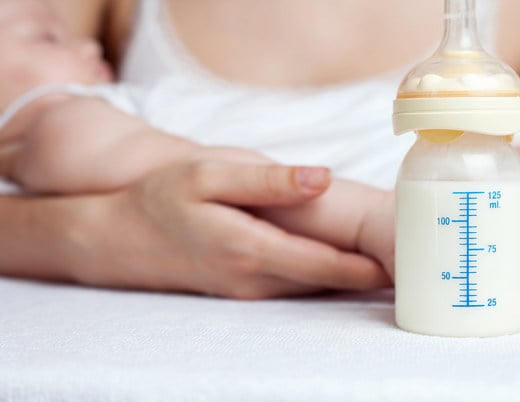Key takeaways
-
The incidence of accidental strangulation or suffocation in bed among infants is on the rise.
-
The study found that adolescent mothers often chose to deliberately violate known safe sleep practices.
-
Researchers identified new approaches to address misconceptions of adolescent mothers regarding safe sleep practices. This includes educating grandmothers, improving healthcare provider education and creating public service campaigns.
A recent study in The Journal of Pediatrics by researchers from the Breathing Institute at Children’s Hospital Colorado aimed to better understand how adolescent mothers approach safe infant sleep.
Background on sudden unexpected infant death syndrome (SUID)
Sudden unexpected infant death syndrome (SUID) — which includes sudden infant death syndrome (SIDS) — is the nation's number one cause of death in infants 1 month to 1 year old. Efforts to reduce SIDS, including awareness campaigns and guidelines by the American Academy of Pediatrics, have helped level off death rates since 1999, but the incidence of accidental strangulation or suffocation in bed is increasing.
Methods for researching adolescent mothers and safe sleep
It is known that maternal age of under 20 correlates with a greater risk of SIDS. Breathing Institute researchers conducted the study with seven focus groups, which included 43 adolescent mothers in Colorado.
The focus groups explored the mothers' safe sleep knowledge, attitudes, beliefs and current practices to understand where they get their information and what motivates their decision making. Researchers used this insight to develop future intervention strategies.
Between November 2012 and April 2013, a moderator conducted the focus groups using a pre-developed guide.
The mothers were asked about sleep position, sleep environment, sleep location, smoke exposure and parenting ability.
Safe sleep study results
The researchers identified five common themes (in addition to several related subthemes):
- The majority of participants looked to their mother for parenting information and only asked their child’s pediatrician specific medical questions.
- The vast majority of participants in the focus groups trusted their instincts above everything else, even if it contradicted medical advice.
- Almost all participants knew about SIDS and many of its risk factors.
- Participants commonly used soft bedding including pillows, positioners and, especially, blankets though they knew these practices were not recommended.
- Participants commonly shared a bed with their baby though they knew it was not recommended.

Discussion regarding sleep safety and teen moms
While participants were aware of infant safe sleep recommendations, most deliberately chose to violate them. Results revealed that adolescent mothers' underlying attitudes, beliefs and instincts outweighed knowledge and medical advice.
Additionally, these adolescent mothers differed from mothers in other SUID risk studies due the exhibition of cavalier confidence of their parenting knowledge and ability — even when most of their instincts conflicted with safe sleep recommendations.

Through this study, researchers identified new approaches to address misconceptions of adolescent mothers regarding safe sleep practices. The new strategies to reducing SUID risk among this population include:
- Education of grandmothers
- Improved healthcare provider education
- Public service campaigns targeting this high-risk population
How to refer a patient
- To schedule an appointment or for more information about our program, please call the Breathing Institute at 720-777-6181.
- The sleep team welcomes consultations and referrals and can be reached through OneCall at 720-777-3999.
- If you are a provider and would like to submit a request for a sleep study for your patient, please contact us at 720-777-4539.





 720-777-0123
720-777-0123










